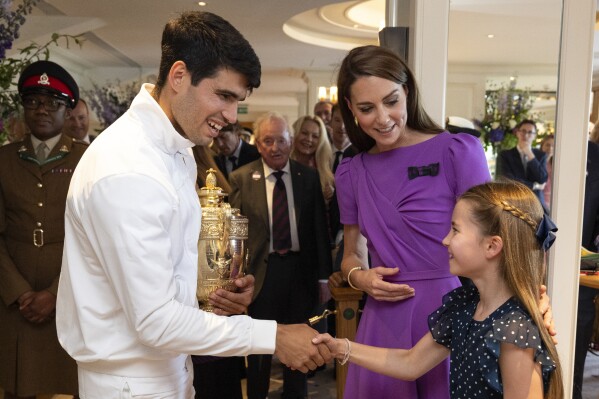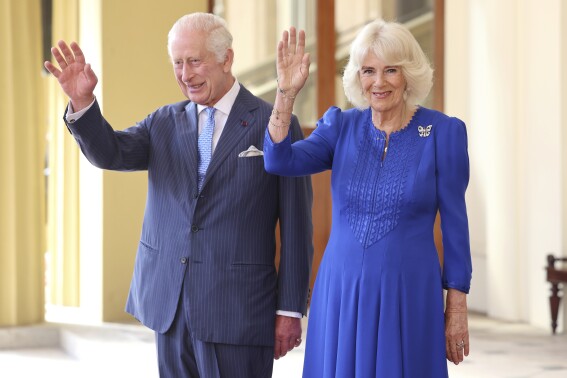A few years ago, I wrote about how it felt being a “grown” man who is 5ft 2in. The piece bemoaned the various height-related hurdles I had to jump over (with difficulty) in my teenage years and early twenties; unsolicited jokes, difficulty meeting women, and a hilarious saga of having growth hormones injected into my bum. These days, I’m at peace with my height, but society is still obsessed with it – and the discourse often swings wildly between the celebration of the “short king” and being branded an angry little goblin with “short man syndrome”.
In Mr Bigstuff, a new Sky comedy out on Wednesday, creator Ryan Sampson seeks to examine societal notions of masculinity. Sampson, standing at 5ft 4in, is the series star, opposite a 6ft Danny Dyer – famously one of the world’s most manly men. The two face off as carpet shop worker Glen (Sampson) and his bombastic, estranged brother Lee (Dyer), who loves chucking the c-word about, you know, like a real man.
“As a particularly short gay dude, I’m fascinated by masculinity; by all the ways that we’re trying and failing to do it right,” Sampson said in an interview earlier this year. “Maybe it’s because of some unresolved short-man issues.”
No wonder Sampson has “unresolved short-man issues”. Society has a heightism problem that goes back many years.
In 19th-century France, Napoleon’s apparent shortness made him the mockery of Europe. He was nicknamed “le petit corporal” by his own soldiers, and was widely portrayed as a diminutive villain (although historians actually estimate that he was above average height for a Frenchman of his era). That stigma has perpetuated, and possibly deepened, ever since.
Last year – more than two centuries later – a study set out to prove that a Napoleon complex, or “small man syndrome”, truly exists, and that being a shorter man makes you more likely to be a psychopathic a***hole. (It should be pointed out that this perfectly reasonable and not at all insensitive study surveyed 367 US adults, and only 142 of them were men of below-average height. Talk about proportional representation.)
And in 2004, the Journal of Political Economy found that there was a “height premium” in the job market, concluding that “a 1.8 per cent increase in wages accompanies every additional inch of height”.
When it comes to notions of masculinity, however, there has been progress in recent years. For tall guys, at least.
Today, masculinity can look like many things. There’s the man of simple pleasures, with his “dad bod”, lager and favourite sports team. Then there’s the more Chalamet-type approach: being strikingly beautiful in a slight, angular way and into the arts. At the more toxic end of the scale, we find the Patrick Batemans of the world, who can’t wait to tell you about their BCAA or creatine intake, and the lads who would challenge themselves to “raw dog” a flight for fun.
The thing is, short men can be all of these things, too. A short, sporty man; a short, cultured man; or a short, thinly veiled maniac. A short man can even be prime minister, apparently, though Rishi Sunak’s physical height had nothing to do with his embarrassing stature on the world stage. So from where I’m standing, it’s hard to see (classic) why concerns over masculinity should be projected onto me more than a man of “average” height – 5ft 10in – or taller.

As a younger man, the inability to grow had a profound effect on me. It became clear that, on the whole, women prefer taller guys. When you’re a teenager in high and all your mates are kissing girls with reckless abandon, not doing that too is the be-all and end-all.
That my height concerned me so much then is adorably pathetic, but it was an early-stage introduction to male standards and a certain type of masculinity. However, even then, problems with masculinity as far as they related to my height didn’t come from me, but from society and its arbitrary norms.
At the age of 28, I’m happy to report that I have now kissed a woman (thank you), and while I have more experience of being a short man in the real world, the relationship between my height and my masculinity remains unchanged: there isn’t one.
I can understand how a good height joke is sometimes an effective icebreaker – I’ve been known to hit below the belt, too
Does being shorter make me less masculine? I don’t think so, but then again, by whose metric? I like a pint and a laugh, reading books, and going to the gym. Which man-category do I fall into? And does it matter?
I owe a lot to my shortness, including the friends that I have now and some of the opportunities I’ve been afforded (such as a starring role in the freshers production of Jack and the Beanstalk. As the giant. Hilarious, I know). Being short is an integral part of my character, and has taught me tons about the type of man/fella/bloke that I am.
It’s also taught me lots about what other people are like. As I’ve got older, I’ve found that it does tend to be the same sort of guys that will constantly go back to the short jokes – taller men who are, more than likely, insecure in their own masculinity. In defence of some of them, I can understand how a good height joke is sometimes an effective icebreaker – I’ve been known to hit below the belt, too.
But equating someone’s height with a perceived lack of masculinity is at best immature, and at worst, the sign of a serious inferiority complex. These are the people that – ironically – need to grow up.
‘Mr Bigstuff’ is out on Sky Max on Wednesday 17 July at 9pm
Disclaimer: The copyright of this article belongs to the original author. Reposting this article is solely for the purpose of information dissemination and does not constitute any investment advice. If there is any infringement, please contact us immediately. We will make corrections or deletions as necessary. Thank you.



